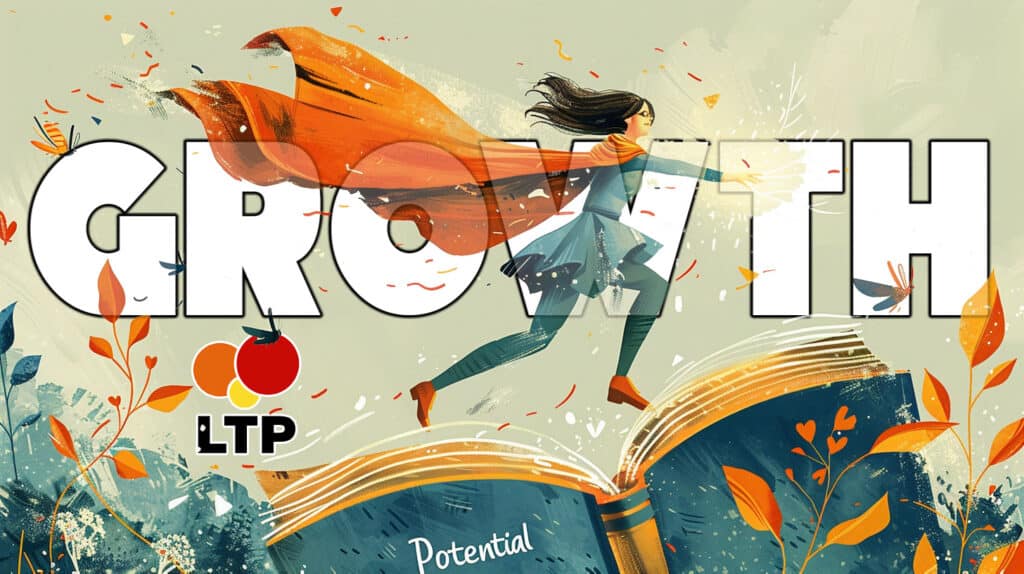


Have you ever wondered how your personality shapes your journey of personal growth? Understanding the intricacies of personality development isn’t just insightful—it’s transformative.
You, the reader, stand at the threshold of personal discovery and growth. Among life’s complexities, your quest for understanding and self-improvement is both noble and universal.
As your guide, I bring insights into the dynamic interplay of personality traits and personal development.
We’ll navigate various aspects: from theories of personality development to practical tips for enhancing self-awareness and leveraging strengths. This journey will help you with tools to reach meaningful growth.
Join me as we explore how personality influences every facet of personal growth. Whether you’re seeking clarity on your strengths or strategies to overcome challenges, this article offers a roadmap to unlock your potential.
By the end, you’ll gain a deeper appreciation of how understanding your personality can lead to profound personal growth. Get ready to start a journey of self-discovery and empowerment.
- 1. Personality Development
- 2. Role of Personality in Personal Growth
- 3. Personality Theory Perspectives
- 4. Personality and Career Development
- 5. Self-Acceptance and Authenticity
- 6. Personality and Goal Setting
- 7. Academic Perspectives and Growth
- 8. Personality Disorders
- 9. Different Personality Traits and Impact
- 10. Personality and Relationships
- 11. Strengths and Weaknesses
- Personality And Personal Growth: A Recap
Here are 11 topics related to personality and personal growth:
- Personality Development: The ongoing process of refining individual traits, behaviors, and emotional patterns to enhance self-awareness and personal fulfillment.
- Role of Personality in Personal Growth: How inherent traits influence how individuals perceive and respond to challenges, contributing to their journey of self-improvement and development.
- Personality Theory Perspectives: Various psychological theories (e.g., trait theory, psychodynamic theory) that provide frameworks for understanding how personality traits form and impact behavior and growth.
- Personality and Career Development: How personality traits such as leadership, communication skills, and adaptability shape career choices, job performance, and professional growth.
- Self-Acceptance and Authenticity: Embracing one’s true self, strengths, and weaknesses to foster genuine self-expression and emotional resilience.
- Personality and Goal Setting: Aligning personal goals with personality traits like motivation and perseverance to enhance goal achievement and personal satisfaction.
- Academic Perspectives and Growth: The role of education in fostering cognitive development, critical thinking, and knowledge acquisition, contributing to personal growth and intellectual capabilities.
- Personality Disorders: Conditions like borderline personality disorder or narcissistic personality disorder that significantly impact behavior, emotions, and relationships, often requiring specialized treatment.
- Different Personality Traits and Impact: Understanding traits such as extraversion, conscientiousness, openness to experience, and their influence on social interactions, decision-making, and life outcomes.
- Personality and Relationships: How compatibility and dynamics of personality traits between individuals affect communication, conflict resolution, and overall relationship satisfaction.
- Strengths and Weaknesses: Identifying and leveraging personal strengths while addressing weaknesses to enhance resilience, effectiveness, and personal development across various life domains.
See also Responsibilities: Tips for Streamlining Chores and Administration
1. Personality Development

Understanding personality development is essential for personal growth and relationships. It refers to the lifelong process of shaping personality traits and behaviors.
Incorporating gender-balanced perspectives, readers gain insight into how life experiences, relationships, and skills shape personality.
Transpersonal psychology navigates the spiritual and transcendent aspects of personality, enriching understanding. Whether taught in psychology courses or explored independently, this topic captivates interested individuals.
Focused study provides valuable insight into oneself and others, helping empathy and connection. By comprehending the intricate interplay of nature and nurture, individuals can navigate personal growth journeys with greater awareness and purpose.
Here’s a list of 10 tips for personality development:
- Self-awareness: Understanding one’s own thoughts, feelings, strengths, weaknesses, and motivations.
- Self-confidence: Building belief in one’s abilities, worth, and potential to achieve goals.
- Emotional intelligence: Developing skills to recognize, understand, and manage one’s own emotions and empathize with others.
- Adaptability: Being flexible and open to change, new ideas, and different ways of thinking.
- Resilience: Coping effectively with setbacks, challenges, and adversity while maintaining a positive outlook.
- Communication skills: Expressing thoughts, ideas, and emotions clearly and effectively, and listening attentively to others.
- Assertiveness: Advocating for oneself and expressing opinions, needs, and boundaries in a respectful manner.
- Empathy: Understanding and considering others’ perspectives, feelings, and needs in interactions and relationships.
- Integrity: Acting consistently with principles, values, and ethical standards in personal and professional life.
- Personal growth: Engaging in continuous learning, self-improvement, and exploration of new interests and experiences.
2. Role of Personality in Personal Growth

The role of personality in personal growth is multifaceted, shaping individuals’ lives in profound ways. Personality influences the sense of self, guiding development and learning goals.
Through various theoretical lenses, such as those in abnormal psychology or holistic health, individuals understand themselves and the world around them.
Positive mindsets help resilience and facilitate meaningful ways of navigating challenges. Moreover, psychological ideas and spiritual guidance offered by non-profit corporations contribute to holistic growth.
Personality serves as a compass, guiding individuals toward self-discovery, fulfillment, and a deeper understanding of their place in the world.
3. Personality Theory Perspectives

Personality theory perspectives have evolved significantly over time, shaped by groundbreaking research developments at esteemed institutions like Stanford University, Harvard University, and UC Berkeley.
Based on Sigmund Freud’s psychoanalytic framework and Erik Erikson’s psychosocial theory, scholars like James Fadiman have expanded our understanding of human behavior and development.
Fadiman, the first president of the Institute of Transpersonal Psychology at Stanford University, received acclaim for his contributions to the field.
These theories offer readers a deeper sense of self-awareness and insight into their lives, guiding students and researchers alike in exploring the complexities of personality and psychology at institutions such as UC Santa Cruz.
Here’s 10 perspectives of personality theory:
- Trait Theory: Focuses on identifying and categorizing enduring patterns of behavior, thoughts, and emotions (traits) that describe individuals.
- Psychodynamic Theory: Emphasizes the role of unconscious processes and childhood experiences in shaping personality and behavior.
- Behavioral Theory: Views personality as a result of learned behaviors, shaped by interactions with the environment.
- Humanistic Theory: Highlights the importance of personal growth, self-actualization, and fulfilling one’s potential in shaping personality.
- Cognitive Theory: Explores how thinking patterns, beliefs, and perceptions influence personality development and behavior.
- Social Learning Theory: Suggests that personality is shaped by observational learning, imitation, and reinforcement from the environment.
- Biological Theory: Investigates the genetic, physiological, and neurological factors that contribute to personality traits and characteristics.
- Evolutionary Theory: Examines how natural selection and adaptation influence personality traits and behaviors over generations.
- Cultural Theory: Considers how cultural norms, values, and socialization practices shape personality development and expression.
- Integrated Perspectives: Seeks to combine insights from multiple theories to provide a comprehensive understanding of personality development and individual differences.
4. Personality and Career Development

Personality profoundly influences career development, shaping how individuals navigate their professional lives and pursue success. Personal growth plays a pivotal role, as individuals evolve and adapt to new challenges and opportunities.
Achieving work-life balance hinges on understanding one’s personality traits and aligning career aspirations with personal values and interests. Learning goals are integral, driven by insights gained from psychological theories and social psychology.
By focusing on skill development and honing interpersonal relationships, individuals gain valuable insight into their own reactions and those of others.
Gender-balanced perspectives, informed by the diversity of experiences and backgrounds, enrich the professional world.
Ultimately, career development is a journey of self-discovery, where individuals draw from their own conclusions to create fulfilling and meaningful paths in the ever-changing landscape of career and wealth, and life.
10 items on how personality traits help with career development:
- Career Fit: Identifying roles that match strengths and values.
- Motivation: Driving persistence and goal achievement.
- Communication: Building relationships and networking.
- Leadership: Effective management and team coordination.
- Problem-Solving: Creative and analytical thinking skills.
- Adaptability: Flexibility in navigating challenges.
- Teamwork: Collaborating effectively in diverse teams.
- Stress Management: Handling pressure and setbacks.
- Decision-Making: Making informed and confident choices.
- Professional Growth: Continuous learning and development.
5. Self-Acceptance and Authenticity

Personal growth through self-acceptance and authenticity involves one’s true self and nurturing a deep sense of self-worth and belonging. It entails recognizing and honoring one’s unique personality traits, strengths, and vulnerabilities without judgment or self-criticism.
For example, someone may have struggled with perfectionism, but through self-acceptance, they learn to appreciate their efforts and progress rather than fixating on unrealistic standards.
By cultivating self-acceptance, individuals have a supportive inner dialogue and develop resilience in the face of challenges.
This process aligns with transpersonal psychology, which emphasizes the integration of personal knowledge and spiritual experiences in fostering holistic growth and wellness.
6. Personality and Goal Setting

Personality and goal setting intersect profoundly in personal growth. Personality development refers to the unique configuration of traits and behaviors that shape how individuals interact with the world.
When individuals set goals, they tap into their personality traits, such as perseverance or creativity, to chart their paths forward.
Emotional stability helps resilience in the face of setbacks, crucial for the sustained pursuit of goals.
Strategies for sustainable growth include aligning goals with personality traits, breaking them into manageable steps, and leveraging strengths to overcome obstacles.
A positive mindset fuels their aspirations, influencing their reactions to setbacks and challenges. By aligning goals with their values and strengths, individuals focus their efforts on meaningful pursuits, helping personal development.
Goal setting becomes a catalyst for honing traits and helping resilience, ultimately shaping lives and the myriad factors of personality development.
See also Selfcare Reminders: 10 Mindful Moments in Daily Life as a Routine
7. Academic Perspectives and Growth

“Academic Perspectives on Personality and Personal Growth” explores the multifaceted exploration of human development and self-evolution through various theoretical lenses.
Educators worldwide, including those at San Francisco State University and Sofia University, utilize resources like the seventh edition of textbooks, often authored by esteemed scholars like Robert Frager and James Fadiman.
These resources offer a comprehensive examination of personality perspectives, evaluating theories from renowned psychologists such as Erik Erikson.
Through streamlined organization and access codes, students in master’s programs gain insight into cross-cultural and interdisciplinary approaches.
The study considers many factors, including the influence of several non-profit corporations and consulting firms, offering readers a deep understanding of how different theoretical perspectives intersect to shape personal growth and development.
Here are 7 theories from renowned psychologists, that focus on various aspects of personality and personal growth:
- Erik Erikson – Psychosocial Development: Erikson’s theory proposes that personality develops through a series of psychosocial stages, each characterized by a developmental crisis or challenge. Successful resolution of these crises leads to the development of specific virtues and contributes to personal growth and identity formation throughout life.
- Jean Piaget – Cognitive Development: While Piaget’s theory primarily focuses on cognitive development, it also contributes to understanding personality formation. Cognitive abilities, such as reasoning and problem-solving skills, influence how individuals perceive and interact with the world, shaping aspects of their personality and intellectual growth.
- Sigmund Freud – Psychosexual Development: Freud’s theory of psychosexual development suggests that personality development is shaped by early childhood experiences and the resolution of conflicts related to different stages of psychosexual development. These experiences influence personality traits, behaviors, and psychological well-being.
- Lawrence Kohlberg – Moral Development: Kohlberg’s theory of moral development examines how individuals develop moral reasoning and ethical decision-making abilities. As individuals progress through stages of moral development, they gain a deeper understanding of moral principles and values, which contributes to their personal growth and ethical development.
- Albert Bandura – Social Learning Theory: Bandura’s social learning theory emphasizes the role of observational learning, modeling, and reinforcement in shaping personality and behavior. Personal growth occurs through learning from others’ behaviors, experiences, and the consequences of those behaviors, which influence self-efficacy and behavioral choices.
- Carl Rogers – Person-Centered Theory: Rogers’ person-centered theory emphasizes the importance of self-concept and self-actualization in personal growth. He proposed that individuals strive towards self-actualization—a state of becoming the most fully realized version of oneself—through experiences that foster unconditional positive regard, empathy, and personal authenticity.
- B.F. Skinner – Operant Conditioning: Skinner’s theory of operant conditioning explains how behavior is shaped by reinforcement and punishment. Personal growth occurs as individuals learn through reinforcement—positive and negative—that strengthens desirable behaviors and diminishes undesirable ones, influencing personality traits and behavioral patterns.
8. Personality Disorders

Personality disorders present complex challenges within the world of personality and personal growth.
These conditions, characterized by rigid and maladaptive patterns of thinking, feeling, and behaving, can hinder individuals’ ability to navigate life’s challenges and cultivate healthy relationships.
Here’s 10 personality disorders recognized in psychology:
- Borderline Personality Disorder (BPD): Characterized by instability in mood, behavior, and relationships, often involving intense emotions and fear of abandonment.
- Antisocial Personality Disorder (APD): Involves a pattern of disregard for others’ rights, lack of empathy, deceitfulness, and impulsivity, often leading to conflict with society.
- Narcissistic Personality Disorder (NPD): Marked by grandiosity, a need for admiration, and lack of empathy, with an inflated sense of self-importance.
- Obsessive-Compulsive Personality Disorder (OCPD): Involves a preoccupation with orderliness, perfectionism, and control, often at the expense of flexibility and efficiency.
- Avoidant Personality Disorder: Characterized by feelings of inadequacy, social inhibition, and hypersensitivity to criticism, leading to avoidance of social interactions.
- Dependent Personality Disorder: Involves excessive reliance on others for emotional and decision-making needs, with fear of separation and difficulty initiating tasks independently.
- Schizotypal Personality Disorder: Includes eccentric behavior, unusual beliefs or perceptions, and difficulty forming close relationships, often resembling mild forms of schizophrenia.
- Histrionic Personality Disorder: Marked by excessive emotionality and attention-seeking behavior, with a strong desire to be the center of attention and often displaying dramatic and exaggerated emotions.
- Schizoid Personality Disorder: Involves detachment from social relationships and a limited range of emotional expression, preferring solitary activities and showing little interest in forming close bonds.
- Paranoid Personality Disorder: Characterized by pervasive distrust and suspicion of others’ motives, interpreting benign interactions as threatening or demeaning.
9. Different Personality Traits and Impact

Different personality traits play a pivotal role in shaping an individual’s journey of personal growth. Traits such as openness to experience can drive curiosity and exploration, leading to new opportunities for learning and development.
Conscientiousness helps goal-setting, discipline, and perseverance, facilitating progress toward self-improvement.
Extraversion encourages social engagement and networking, providing avenues for collaboration and support. Agreeableness promotes empathy and cooperation, facilitating harmonious relationships essential for personal growth.
Neuroticism, while often viewed negatively, can motivate individuals to seek solutions to challenges and strive for resilience. Understanding how these traits influence behavior and decisions is crucial for leveraging them effectively in the pursuit of personal growth.
10. Personality and Relationships

Personality profoundly influences interpersonal relationships, shaping how individuals connect, communicate, and relate to others. Understanding one’s personality traits and those of others is essential for navigating relationships effectively.
Personal growth in the context of interpersonal relationships involves developing empathy, communication skills, and conflict-resolution abilities.
It’s about recognizing the dynamics of different personalities and finding ways to complement each other’s strengths and weaknesses. Navigating growth together requires mutual respect, compromise, and a willingness to learn and adapt.
Ultimately, healthy interpersonal relationships contribute to personal growth by providing opportunities for self-reflection, emotional growth, and deepening connections with others.
11. Strengths and Weaknesses

In the pursuit of personal growth, achieving a balance between one’s personality strengths and weaknesses is essential for holistic development.
Recognizing and leveraging strengths, such as creativity, empathy, or resilience, can propel individuals forward in their journey of self-improvement.
Simultaneously, addressing and working on weaknesses, whether they involve communication skills, money management, time management, or emotional regulation, fosters growth and resilience.
By having both aspects of their personality, individuals cultivate self-awareness and adaptability, enabling them to navigate challenges effectively and capitalize on opportunities for growth.
This balanced approach helps continuous development and empowers individuals to realize their full potential.
Here’s a list of 10 strengths and 10 weaknesses related to personality:
Strengths:
- Empathy
- Resilience
- Openness to Experience
- Assertiveness
- Adaptability
- Creativity
- Leadership
- Organizational Skills
- Communication Skills
- Integrity
Weaknesses:
- Impulsiveness
- Perfectionism
- Introversion
- Timidity
- Over-sensitivity
- Procrastination
- Stubbornness
- Lack of Assertiveness
- Disorganization
- Rigidity
See also Self-Love Books: 12 Books Nurturing Self Love and Inner Peace
Personality And Personal Growth: A Recap
Understanding the intersection of personality and personal growth is a journey that transcends theories and crosses cultural boundaries.
While theories in psychology offer frameworks, individuals ultimately apply these insights to their own lives, drawing their conclusions through personal experiences and reflections.
Whether through the lens of social psychology or insights from cross-cultural studies, the exploration of personality and personal growth is deeply rooted in our own reactions and interactions with the world.
From attending seminars to journals and theory, each avenue offers valuable insights into self-discovery and development.
Following this multifaceted approach empowers individuals to navigate life’s complexities, growth, and fulfillment on their unique paths of self-realization.


